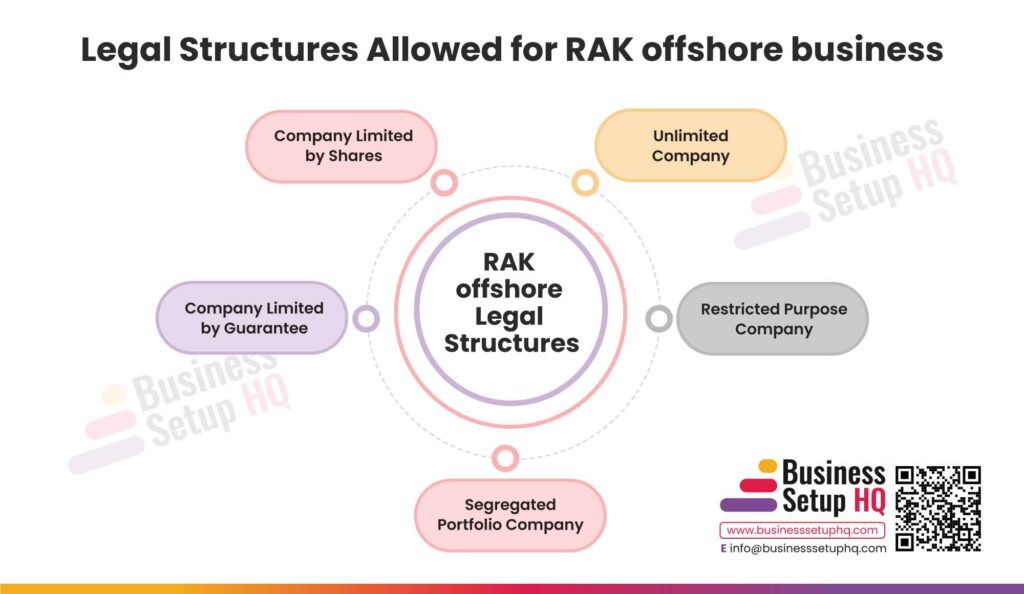Understanding the Refine of Offshore Business Formations: A Step-by-Step Guide
Offshore business formations include a collection of methodical steps that call for cautious factor to consider. Choosing the best territory is vital, as it affects legal conformity and tax advantages. Following this, one have to select a suitable business framework and prepare vital documents. Each phase offers its own challenges and ins and outs, making it necessary to comprehend the procedure extensively. The intricacies of preserving conformity and steering with laws will certainly soon end up being evident.
Selecting the Right Territory
When selecting a jurisdiction for offshore business development, exactly how does one establish one of the most appropriate option? Numerous elements need to be thought about to ensure ideal advantages. Mostly, prospective company owner need to examine the jurisdiction's reputation and stability. A well-regarded area enhances integrity and may attract capitalists. Additionally, tax obligation policies play a significant role; some jurisdictions supply favorable tax prices or exemptions, making them appealing for long-term monetary planning.Legal and regulatory structures are additionally vital. A jurisdiction with straightforward compliance procedures can facilitate smoother procedures. Additionally, the availability of expert services, such as legal and bookkeeping assistance, can simplify ongoing management.Lastly, geographical factors to consider, including time zone compatibility and access, need to not be forgotten. By examining these essential elements, business owners can make enlightened decisions, selecting the territory that aligns finest with their details service objectives and functional needs.
Recognizing Legal Requirements
Recognizing the legal demands for offshore firm development is crucial for business owners seeking to browse the complexities of international business. Each territory has its own particular policies and compliance obligations that must be abided by for a successful setup. Secret factors to consider consist of enrollment procedures, resources demands, and ongoing coverage tasks. Entrepreneurs must additionally recognize tax ramifications and any kind of prospective dual taxes treaties between their home country and the offshore jurisdiction.Additionally, it is necessary to understand the neighborhood legislations bordering service operations, including labor regulations and licensing requirements. Failure to abide by these legal terms can lead to charges, consisting of penalties and even dissolution of the business. Consequently, looking for legal advice or speaking with a professional solution company focusing on offshore developments can help assure that all lawful requirements are met, ultimately facilitating a smoother facility and procedure of the offshore entity.

Selecting Company Framework
When picking a company structure for offshore formations, individuals have to think about various types available, each offering distinctive benefits. Legal considerations and compliance demands play a crucial duty in identifying one of the most ideal option. In addition, understanding tax ramifications and advantages can considerably influence the decision-making procedure.
Types of Company Frameworks
Picking the ideal firm framework is a vital choice that can considerably affect the operations and tax obligation commitments of an overseas company. There are numerous sorts of firm structures readily available for factor to consider, each with its unique benefits and downsides. One of the most common frameworks include limited obligation firms (LLCs), which give obligation defense and flexibility in monitoring; firms, which offer solid asset security and can draw in financiers; and partnerships, which enable common responsibilities and earnings among partners. In addition, single proprietorships are a choice for individuals seeking total control yet with individual responsibility. Comprehending these structures helps service owners make informed choices that line up with their goals and operational demands while enhancing tax effectiveness.
Legal Factors To Consider and Conformity
How can local business owner guarantee they meet legal requirements while picking an offshore company framework? This entails recognizing the specific guidelines and compliance commitments connected with numerous jurisdictions. Service proprietors must carry out extensive study to identify the legal effects of different firm types, such as restricted responsibility firms (LLCs) or global company companies (IBCs) Consulting with attorneys experienced in overseas developments is necessary to navigate intricate laws. Additionally, they should ascertain the picked framework straightens with their business goals and functional demands. Compliance with local regulations, including registration, reporting, and governance demands, is crucial to stay clear of legal difficulties. Proper documentation, openness, and adherence to worldwide standards even more enhance the authenticity and sustainability of the overseas entity.
Tax Effects and Advantages
When picking an overseas firm structure, business proprietors typically encounter significant tax obligation effects and advantages. The choice of framework-- whether a limited obligation company, firm, or partnership-- straight influences tax obligations. Some territories supply positive tax prices or exemptions for specific kinds of entities, which can reduce overall tax obligation obligation. Additionally, overseas companies may offer opportunities for tax obligation deferment, permitting revenues to expand without immediate tax. Nevertheless, it is essential to understand the local tax obligation guidelines and any global tax obligation treaties that might apply. Effectively structuring the firm can likewise assist read review in possession protection and earnings diversity, making it essential for company owners to consult with tax obligation professionals to browse these complexities efficiently.
Preparing Necessary Documentation
A detailed collection of files is important for the successful development of an offshore firm. These files commonly include a memorandum and articles of organization, which outline the company's structure and regulations. Recognition papers for all shareholders and directors are additionally called for, normally containing a key or national ID. Evidence of address, such as energy bills or financial institution statements, is necessary to verify the identifications of these individuals.Additionally, an in-depth organization plan might be requested to clarify the desired tasks and the operational framework of the company - offshore company formations. Some jurisdictions may need an affirmation of helpful possession, exposing real proprietors behind the business. It is essential to assure that all paperwork conforms with regional regulations and laws to prevent hold-ups. Proper prep work of these records not only facilitates a smoother development procedure however additionally lays a strong foundation for the company's offshore company formations future operations
Opening Up a Savings Account
After preparing the needed documents for the overseas company, the following step entails opening up a savings account to facilitate economic procedures. This account is vital for taking care of funds, conducting deals, and making sure smooth company operations.Selecting an ideal financial institution is necessary; variables such as the financial institution's track record, charges, and services should be carefully considered. Some banks might call for extra paperwork, consisting of recognition, evidence of address, and service strategies. It is suggested to select a bank that understands the one-of-a-kind needs of offshore companies.Once the selection is made, the account opening process usually involves sending the needed files and going through a due diligence process. This might include background checks to adhere to global laws. After approval, the offshore firm can access its banking services, allowing it to operate effectively in the worldwide market and handle its monetary activities with ease.
Preserving Conformity and Reporting Commitments

While establishing an offshore company uses various benefits, preserving conformity with worldwide and regional regulations is essential for its long-lasting success. Firms need to be vigilant in adhering to the legal frameworks of the territories in which they run. This consists of timely entry of yearly returns, financial declarations, and any type of needed tax obligation filings.In numerous instances, offshore entities are subject to anti-money laundering (AML) and know-your-customer (KYC) regulations. Non-compliance can cause severe charges, consisting of fines and criminal costs. Furthermore, engaging a neighborhood conformity policeman or lawful expert can help browse the complex regulative landscape.Companies need to additionally stay informed regarding modifications in regulation that may influence their operations. Normal audits and testimonials of interior processes can assure adherence to reporting commitments. Ultimately, preserving conformity not only protects the company's online reputation however also improves its operational performance and sustainability in the competitive global market.
Frequently Asked Questions
What Are the Expenses Involved in Offshore Business Development?

Just how Long Does the Offshore Company Development Process Take?
The overseas business development process generally extends from a couple of days to several weeks. Aspects affecting this timeline consist of territory laws, paperwork demands, and the effectiveness of service carriers associated with the development process.
Can I Run My Service in Multiple Countries?
Operating a business in several countries is feasible, supplied one abide by each territory's policies. International legislations, tax commitments, and neighborhood operational requirements should all be considered to ensure successful cross-border service activities.
Exist Tax Advantages for Offshore Firms?
The concern of tax benefits for overseas firms commonly develops. Several jurisdictions provide lower tax obligation exemptions, incentives, or prices, which can cause substantial cost savings. Guidelines and conformity needs have to additionally be carefully considered.
What Occurs if I Don't Adhere To Laws?
Non-compliance with policies can lead to severe repercussions, consisting of large fines, possible criminal fees, and the dissolution of the business. Regulative authorities might additionally initiate investigations, badly affecting the company's online reputation and operational abilities. Choosing the best firm framework is an essential decision that can greatly affect the operations and tax obligations of an overseas organization. Service owners ought to carry out complete research to identify the legal implications of different firm types, such as minimal liability business (LLCs) or global service companies (IBCs) Organization owners frequently run into substantial tax obligation implications and benefits when choosing an offshore company framework. The costs entailed in offshore firm formation normally consist of registration costs, lawful costs, annual upkeep costs, and possible tax my website obligations. The question of tax benefits for overseas business frequently develops.